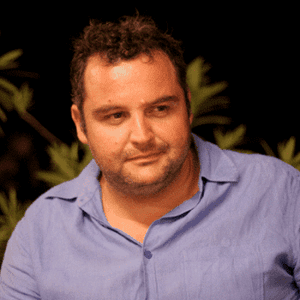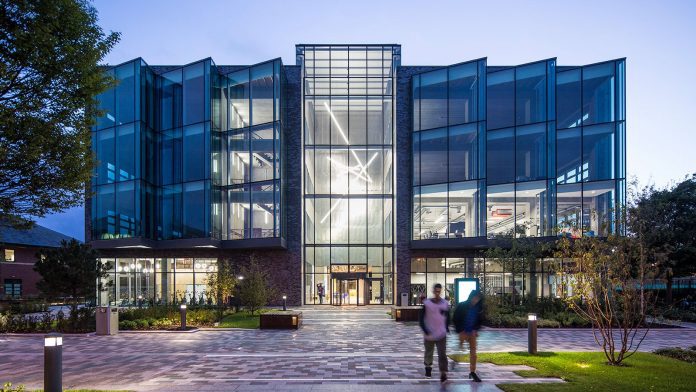The problem with smart cities is no one wants to pay for them. That’s the challenge for Manchester, now, having just completed a ground-breaking two-year smart-city pilot, CityVerve, which appears to have much to recommend it, but nothing to prove it. CityVerve was designed two years ago as the ‘last pilot’ – the smart-city trial to end smart-city trials, and infuse every major mega-city and rural back-water with digital excellence.
It hasn’t quite worked like that.
Cisco, the project’s chief architect, reckons the ‘platform-of-platforms’ at its heart proves the technology works, and technological interoperability can be mastered, even if cultural interoperability remains a work-in-progress. “The project has delivered in every front it promised. We have uncovered things we have not done before,” says Nick Chrissos, project’s director and Cisco’s head of innovation in Europe, in a winding three-part discussion, taking us here and here, before we arrive at this point.
But the return-on-investment (ROI) for such a technology deployment across an entire city remains hard to define. Chrissos suggests cities must be more adventurous in their acquisition strategies, and tech providers should shoulder the initial financial risk for municipal authorities, possibly through revenue-sharing models.

“It’s just an example,” he says. “It doesn’t mean that’s what Cisco is thinking in Manchester.” That may be so, but something has to be done in Manchester, if CityVerve is not just to wind itself back in, as yet another inconclusive pilot.
CityVerve is only 10 months old in practical terms; the first 14 months of its two-year allocation were spent in planning. It has not yet generated sufficient data to enable its architects to work-through the ROI model for its various solutions.
Such an exercise appears to be the only logical way for technology providers to present an expansive pilot like CityVerve as a costed blueprint to the rest of the world. “That is the best way to get someone to procure it, for sure. We are evaluating the use cases now, against all sorts of metrics – against the impact on the citizen, and the city,” says Chrissos.
Holding pattern
The problem is CityVerve’s scope was limited; it was a pilot, after all. Even a choice patch of inner-city Manchester like Oxford Road, which stretches from its university area to its town centre, will not generate a cast-iron business case for smart cities in the end. “It is an isolated area, which behaves like a city itself, but is only a part of the city,” he says.
The city needs to take a punt, and put the project into production. “Manchester should take the plunge, and adopt some of the services properly.” Will Manchester do that? “That is what we are discussing.” He adds: “The legacy is not about retaining a testbed; it’s about Manchester choosing the aspects it loves, and deploying them into the rest of the city.”
So, it it out of Cisco’s hands, now? Is Cisco in a holding pattern, apart from the duty to disseminate the project’s general findings among the UK smart-city community, until the Manchester makes a decision?
“I am not expecting Manchester to say it will buy, or it won’t buy; I am expecting Manchester to say, ‘Let’s work together now to find a mechanism to help other cities procure this.’ The truth is we need cities to tell us how they want to procure it.”
Is it possible another city will deploy the ‘CityVerve innovations first ? Is it more likely, in fact, that Los Angeles or Lyon, say, will be the first to make this real? “It is possible; there are polarised elements even in Manchester, about how the project should develop.”
At the same time, Manchester leads the devolution agenda in the UK; the Greater Manchester, lead by mayor Andy Burnham, has taken increasing power from central government for health, social care, justice, transport, housing, labour, and local enterprise.
“If you really go down to it, the mayor of Manchester has more budget and power than the mayor of London,” says Chrissos. “If any city in the UK can do it, it should be Manchester. This is a unique opportunity for a city to make these kinds of tough decisions. That’s one of the reasons Manchester was chosen.”
Platform nirvana
So what happens now, while we wait for Manchester to make a decision on CityVerve? Does the CityVerve screen in the Bright Building in Manchester Science Park, which live-streams the city data off the ‘platform-of-platforms’, slowly gather dust, until the plug gets pulled, and an empty room goes dark? It’s melodramatic, but there is a sense of anti-climax, after such rich promise?
“Let me tell you the plan. We are planning to seriously ‘productise’ CityVerve. We will milk the branding and the findings. We have created a story that has lots of life, and we want to tell people about it. The city feels the same anxiety of finishing. It wants to show these impactful results; it wants an extension of the project,” explains Chrissos.
Does CityVerve mean something more? Does it show the smart cities market has reached a new phase of maturity; does it set cities up for new and expansive projects? “No one wants any more pilots.” No, but cities said that two years ago?
“Two years ago, they said ‘We have done enough experiments; let’s do something together that is real and replicable’. But they were still funding a pilot; there is no appetite to fund pilots today. When they talk about pilots now, they are talking about real deployments that solve real problems.”
Chrissos pans out, and pinpoints the Cisco proposition, one last time. “There is no real understanding out there of the power of a single platform in the middle, and the city in control – and not spending money on isolated solutions it will struggle to bring together in five years,” he says.
“Cities are still making the mistake of focusing on use cases. They forget the power of the platform, which lets them do whatever they want. If anything, this is what should come out of CityVerve, that the platform is the most powerful element of the whole thing – the nirvana, of what a smart city should be.”
The smart cities interview (pt1): “Cities don’t have magic beans,” says Cisco
The smart cities interview (pt2): “Those offers are hard for cities to refuse”, says Cisco

